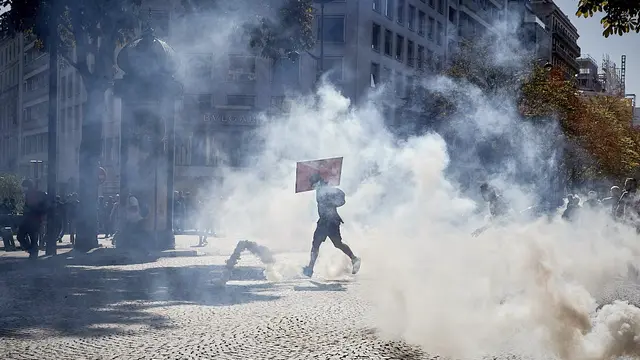The high level meeting between Iran and UN nuclear watchdog on the former's controversial nuclear program raised hopes for a breakthrough in the long-stalled standoff, as diplomatic sources voiced cautious optimism towards next Monday's talks.
Yukiya Amano, head of the UN atomic watchdog - the International Atomic Energy Agency (IAEA) - on Monday would meet with Iranian Deputy Foreign Minister Abbas Araqchi for about an hour at the IAEA's Vienna headquarters.
This is to be followed by talks over the framework of IAEA inspections to sites, people and documents believed to be linked to possible work on atomic arms.
Previous talks over the past two years over the issue have yielded no substantial progress.
But Vienna-based diplomats are expressing cautious optimism over the upcoming meeting next week.
"This time, they may go into details," one diplomat who refused to be named told Xinhua.
Another diplomat also said the talk might be more positive than before, since the Iran's new president had been seeking to resolve the nuclear issue.
Araqchi played a key role in separate negotiations that resumed in Geneva last week between Iran and the P5+1 - namely the United States, Russia, China, France, Germany and Britain - aimed at finding a diplomatic solution.
The talk in Vienna is separate but deemed to be closely linked to the crunch six-party talks in Geneva on November 7-8.
The powers want Iran to curb activity that can have both civilian and military purposes. The IAEA, meanwhile, wants to gain access to sites, officials and documents in Iran for its investigation.
On Wednesday and Thursday, a seven-member expert Iranian team will meet with counterparts from the six powers to prepare the groundwork for the Geneva gathering.
Iran is long suspected by the UN nuclear watchdog to be conducting possible experiments on developing nuclear weapons, an allegation which Tehran repeatedly denied, saying the agency is influenced by misleading intelligence provided by Western spy agencies.
On Saturday, Alaeddin Boroujerdi, who heads the Iranian parliament's influential foreign policy committee, said the Islamic republic has not halted enriching uranium to the 20 percent level
The remarks came days after Hossein Naqavi-Hosseini, the spokesman for the National Security and Foreign Policy Commission said on his website that Iran was temporarily halting its production of uranium to the 20 percent level, as "there is no more need for its production."
Enriching uranium to 20 percent purity is a few technical steps short of producing weapons-grade fissile material.
 简体中文
简体中文



